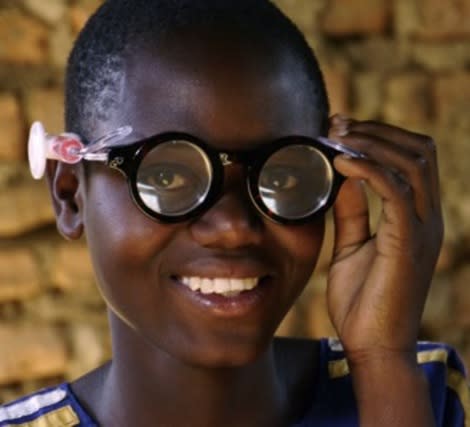5 Low-Tech Innovations Making a Difference in the Developing World
By Shea Gunther, Mother Nature Network

Technology is a wonderful thing. It's hard to comprehend the level of complexity that enables our everyday life - it's a dizzying world that is getting faster week by week. There's merit in pushing the advancement of technology, but it's important to remember to take a step back and look for new ways to reapply technology to age-old problems. There's nowhere that's more vital than in the developing world.
When resources like energy, materials or education are scarce, the simplest technology is the better choice. Simple usually means reliable - and reliable can mean the difference between having a machine that functions and having a useless paperweight. When the technology cleans water or keeps food fresh, it can mean the difference between life and death. Here are five simple innovations that are making a big difference in people's lives in the developing world.
Rocket Stove
The rocket stove is a wonderfully efficient design that harnesses the properties of heat and combustion to create a clean and hot burn using half as much fuel as conventional means and accepting anything from wood branches to dry grass to dung. The ability to cook with the smallest-caliber fuel means not having to cut down a tree to feed your family. It can mean not having to walk miles for firewood. The design for the stove is simple, meaning it can be built quickly and easily using local materials. Someone with a dash of handiness and an L-shaped pipe could have something up and running within an hour or two. The idea for the rocket stove was created by Dr. Larry Winiarski, who in 1980 took inspiration from the hypocaust, the under-floor heating system favored by the Romans.
Plastic Bottle Light
Take a soda bottle, fill it with water and add a drop or three of bleach. Cut a hole in your roof and epoxy it halfway in. Voila, and there is light. It turns out that a simple plastic water bottle, in the right situation, can be easily transformed into a bright daytime light bulb. The water bottle light is meant for tin roofs and works by collecting sunlight in its top half and distributing it out the bottom half inside the house. Where there was once a dark room during the day, there is now light. Where there was once a costly light bulb, there is now free illumination. These are cheap, easy to install, and are making a big difference in a lot of people's lives. See how it works in this video from A Liter of Light.
Folded Saris
Researchers in Maryland and Bangladesh figured out a simple solution to the problem of water-borne cholera - run the water through an old sari folded into four layers. The rough cotton fibers collect microscopic plankton, which attracts the cholera. The researchers taught the technique to women in 27 villages in Bangladesh and monitored the villagers' health. They found that over the next 18 months, the cholera rate dropped by 50 percent compared to surrounding villages.
Adjustable Glasses
Those of us with glasses are familiar with the verbal patter of an eye exam. The process of finding the right prescription is relatively simple - you keep refining, or focusing, the prescription until the person looking through the lens says it's clear. It's a technical and involved process, even on the modern equipment used by optometrists. But on Joshua Silver's adjustable glasses it's a much easier process - you just add or subtract a silicon oil sandwiched in the middle of the lens until things look clear, a process that usually takes no more than a couple of minutes. These glasses have the benefit of being easy to deploy and even easier to adjust, and have greatly improved the quality of life for developing world citizens with less-than-perfect vision.
The LifeStraw
A depressing number of people in the world lack regular access to clean drinking water. Those of us in the developing world have the luxury of unlimited access to clean drinking water, but billions of people around the world have to draw their water from dirty, polluted sources. Millions of people die every year from diseases contracted from drinking water and millions more are sickened. One of the tools for fighting the transmission of water-borne disease is the LifeStraw, a simple water filter that cleans the water as it is sucked it up from the polluted source. The LifeStraw is small enough to be easily carried and can be shared by family and friends.
Related stories:
• 8 technology revolutions that are now relics
• 7 apps to help you get the most out of nature
• Scientist creates cellphone-charging T-shirt
